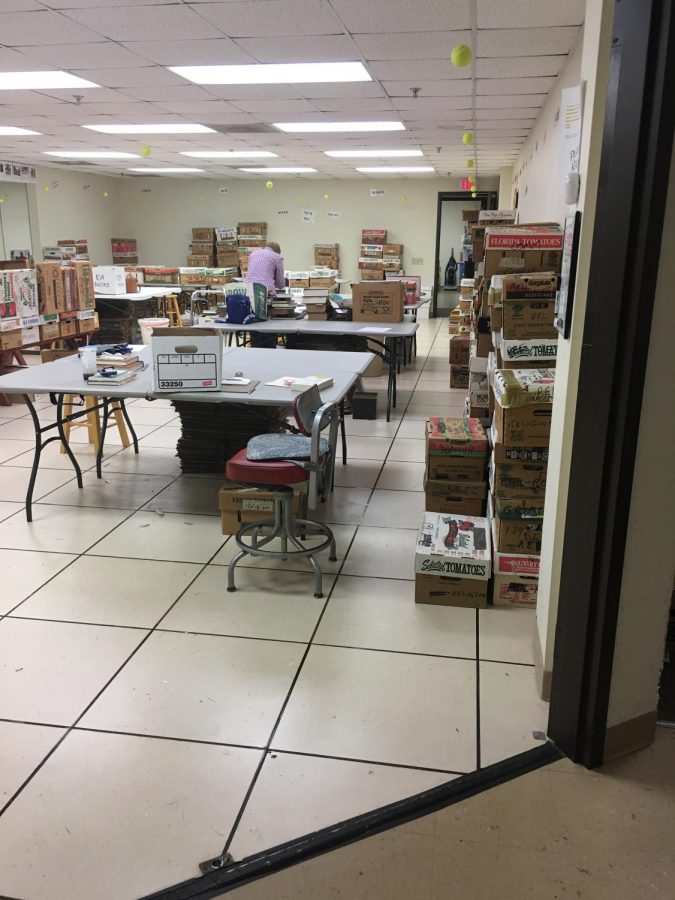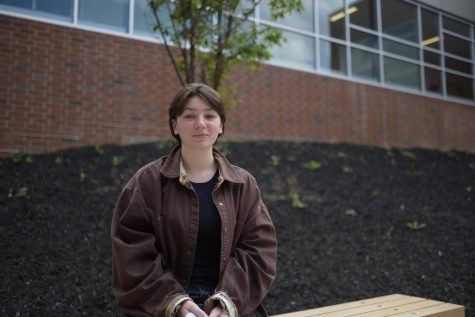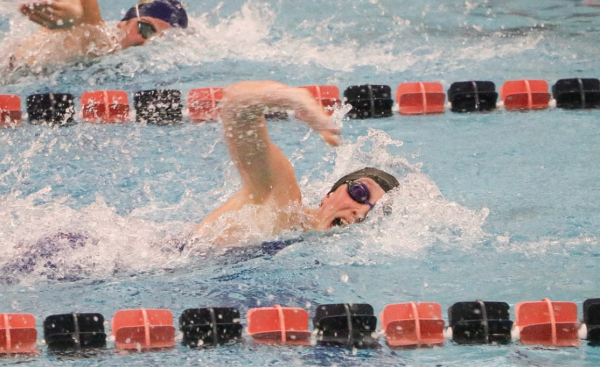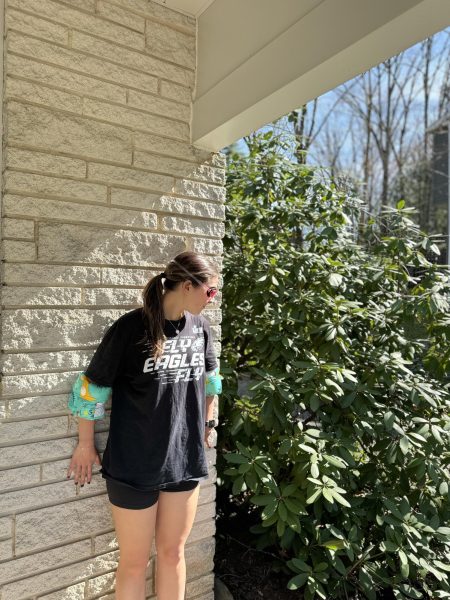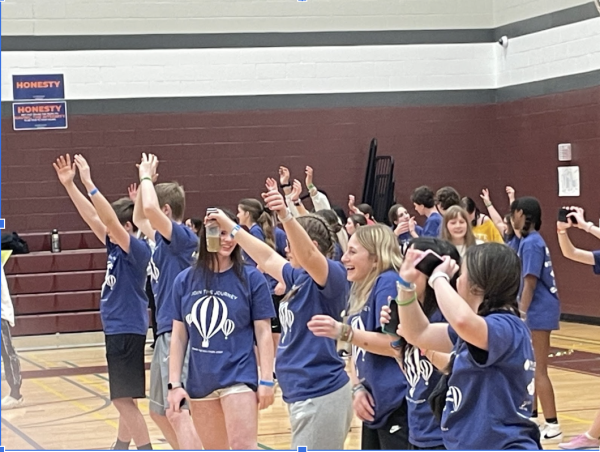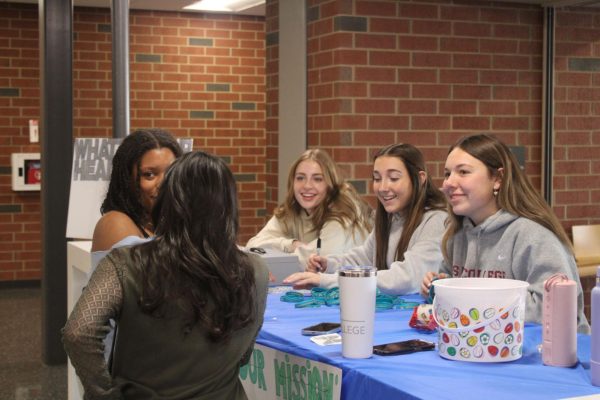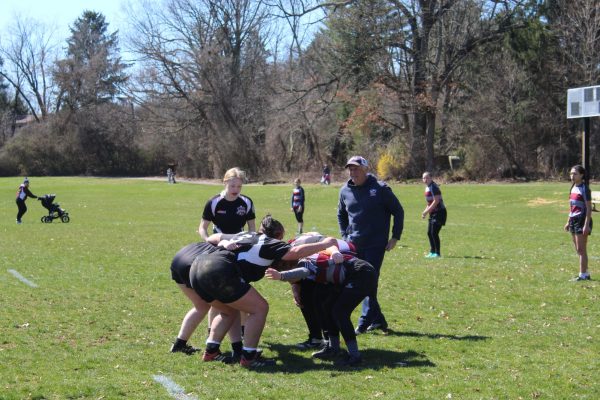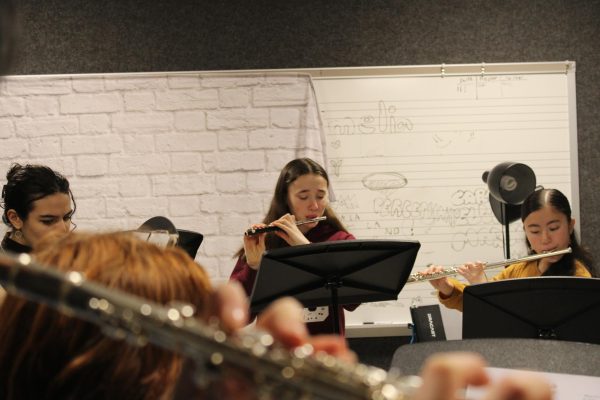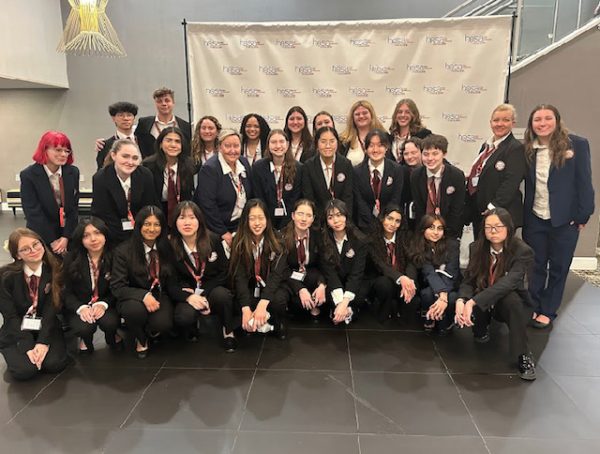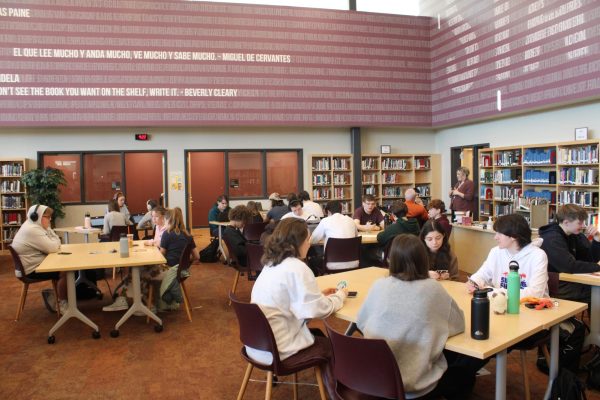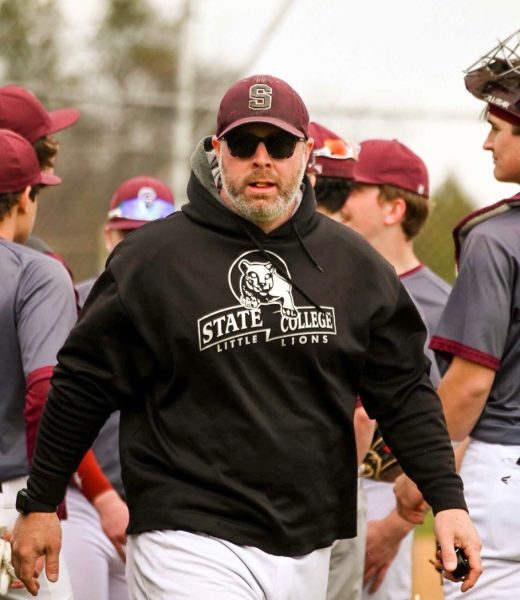Read, Recycle, Repeat
How the AAUW is using books for good.
Sue Hiester, the lead book sorter, arranging previously sorted books into boxes they will remain in until the sale in May. ”We wouldn’t exist if the community were not as generous as it is in terms of giving us donations,” Hiester said.
October 9, 2019
After trekking down the drop-off lane to the State College AAUW’s (American Association of University Women) headquarters, the warm glow of industrial building lights, the building block walls of boxes, and the heaping piles of books are a welcome sight. Walking further into the building reveals something else, the secret behind the organization’s efficiency and the kindness that seems to make their central base shine: the people.
Volunteers led by Sue Hiester, the lead book sorter, and Dina Liberatore, the used book sale chairperson of the 2020 book sale, are hard at work culling, sorting, and pricing books and other forms of handheld entertainment. They have all chosen to spend the time between six and eight p.m. on Monday nights preparing everything from books to sheet music for their annual sale in May. It may seem like an exhausting task, but the cheerful atmosphere and the end goal of this sale provide plenty of encouragement to keep everything running smoothly.
The end goal, particularly, is something that everyone benefits from working toward. Through advocacy, education, philanthropy, and research, the AAUW focuses on supporting the educational needs of women and girls. This can include anything from providing an applicant with a scholarship to sponsoring STEM programs hoping to inspire young girls.
“The money that we earn goes back to the community, in that we give money to different kinds of community organizations, particularly those that serve women and girls,” Hiester said. “The program has to have an educational component because that’s important to us and if it benefits girls and women, not to the exclusion of males, but particularly to girls and women, then that’s something that we fund.”
The annual book sale’s positive impacts, however, are not limited to the local area. Without the AAUW, every book that could have been donated would have found its way to a dump. As paper is biodegradable, this situation does not hold a candle to the trashing of plastics and other materials, but it still helps to know that these books are being given a chance at a new life and are keeping the environment clean in the process.
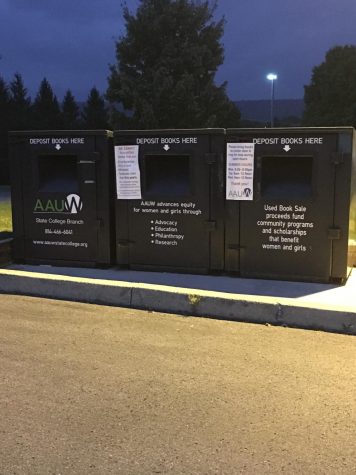
In fact, even the books that are unable to be sold still go on to serve in other ways. “The covers go to the dumpster and we have recycling for the books themselves,” Tom Miller, whose main job is to help move the donations and dispose of unsellable books, said. “So even though we can’t resell those books, the majority of the paper is recycled.”
Not only does the AAUW find ways to make the best of the books that they are unable to sell, but they take the concept a step further, sharing their donations with neighboring communities. When the AAUW receives multiple copies of a book, a few of those copies are thrown out because they most likely will not be sold and take up space. Realizing that, Lock Haven also has an AAUW book sale which provides another option for the books: to be saved and sold there.
“Since I live in State College, but I go to things in Lock Haven, I began the shuttle,” Carol Pollard, who both sorts and transports books between the two cities, said. “At first I was still sorting over there, so I would pick up books here, and take them over to the sort over there. And so those multiple copies got sold in Lock Haven, which was really wonderful because it gave those books another chance and it got books to Lock Haven.”
The impact is great, but the process is simple and has been perfected to achieve maximum efficiency. After a book is donated, it finds its way inside the building and makes a few stops before it is finally boxed and ready for the sale.
“Right now I am working with culling the books. When the books come in from donations, either from the bins or from people bringing them in, we go through them very quickly and put them in boxes that are all the same size, because we have a space problem here. And any books that are moldy, dirty, ripped up, or torn get pitched,” Del Scott, whose ability to cull books has almost become second nature, said.
Next, the books are sorted and priced. They are taken from the uniform boxes in which they were culled and placed in boxes of the same design with genre-based labels on them. As of now, most of the books are just being sorted, but once the sale date creeps closer, there will be more emphasis on pricing the books.
“And then they bring them to the sorting table where our volunteers sort them into different topic areas and categories,” Liberatore said. “And then we move them to the pricing areas-so all the boxes that are the same-and we have volunteers that come in to price each and every book. And then they move into the back room where they’re stored until we take them out for the sale in May.”
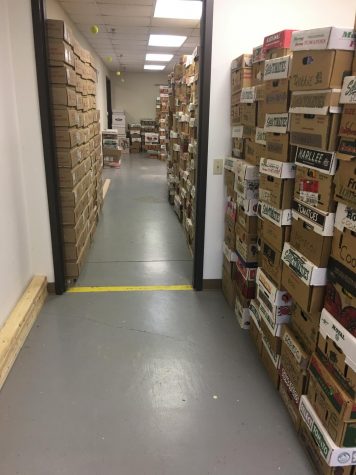
Everybody volunteering made the decision to help with the AAUW book sale, and whether their motivation tends to align more with the project’s goal or with something entirely different, they all have something that keeps them coming back and working hard.
“Originally I started with the paperbacks and then the person that originally did the CDs and DVDs no longer could do it so they asked me to fill in and that’s what I’ve been doing for the last I don’t know how many years,” Marianne Domitrovitz, one of the pricers for DVDs, CDs, and books on CDs, said. “Quite a few years. And I enjoy it. I challenge myself each night to see how many boxes I could complete.”
Many find that an added bonus to the satisfaction of helping their community is the time spent around books. “It’s sort of like a way to de-stress, to go through the books and I love, you know, sharing books that we’ve found with other people and other volunteers here,” Liberatore said. “So sometimes we find really special ones, autographed, first editions, and things with cool like ephemera written in the books. We found World War II gas stamps one time, or gas ration cards I guess they were, we’ve found money in the books, we’ve found photos and postcards and things like that and so it’s just fun to talk about that history of, you know, what was this person like that donated these books.”
“And I love reading so this is a great opportunity for me to take a look at books I’m interested in,” she added.
No matter what brings you to the project, the AAUW always opens its doors for new donations and volunteers. You can find their State College Headquarters at 176 Technology Drive in Boalsburg where you can begin your volunteer career or make a contribution to their ever-growing collection of books. To learn more about the AAUW’s mission or the ways in which you can help, go to their website at http://www.aauwstatecollege.org/ or call them during workshop hours at 814-466-6041. The book workshop will be run through March (excluding holidays) and the hours are Monday nights from 6 to 8 p.m. and Tuesdays and Wednesdays from 9 a.m. to 2:30 p.m. The annual used book sale will be held on Saturday, May 9 through Tuesday, May 12, 2020.

